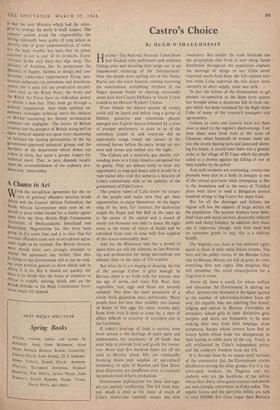Politics versus Aviation
WIlEnIER a cosy house party at Chequers can cure the ills of the aircraft industry is open to doubt. But it was a good idea for which Mr. Julian Amery deserves credit. As major contracts had been settled, no compunc- tion can have disturbed the Ministry of Aviation men and the heads of the airline corporations and of the approved aircraft and acro-engine groups when they sat down to their 'working dinner' (a new British invention for insulting the chef) to consider the future. The intractable fact
THAT WAS- THE CHURCH THAT WAS is that the very Ministry which had the enter- prise to arrange the party is itself suspect. The Industry cannot avoid the responsibility for having repeatedly been guilty of Iorig delays in delivery and of gross underestimation of costs; but the basic trouble has been that its prime customer is not a user of its products. Users' criticism is the only kind that digs deep. The Ministry of Aviation, like its predecessor the Ministry of Supply, dabbles in design and con- struction, undertakes experimental flying, pro- nounces judgments on inventions and distributes orders; but it does not use production aircraft. Users such as the Royal Navy, the Army and the Royal Air Force have no individual power to choose a best buy. They must go through a Political organisation. And while political ex- pediency outweighs technical merit the chances. of Britain recovering her former aeronautical eminence are negligible. The future of British aviation and the prospect of Britain doing well in space research depend not upon more chumming up between the leading personalities of the big government-approved industrial groups and the members of the department which dishes oet orders to them, but upon a proper respect for technical merit. That in turn, depends largely uPen the re-establishment of the ordinary pro- ducer-user relationship.



































 Previous page
Previous page